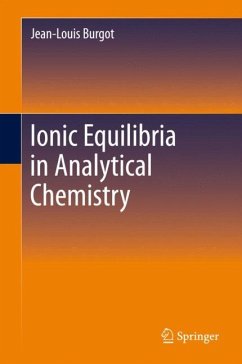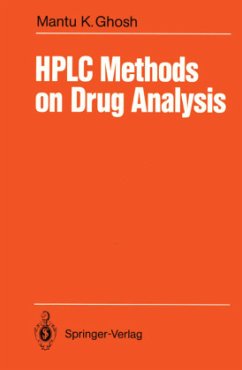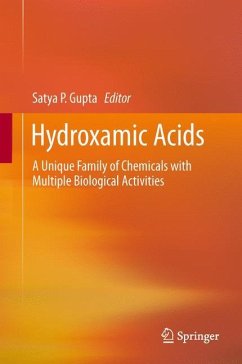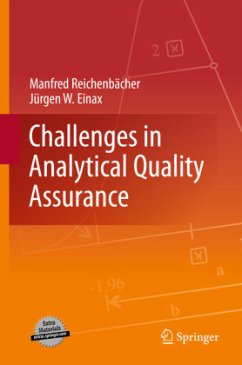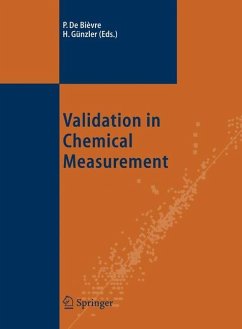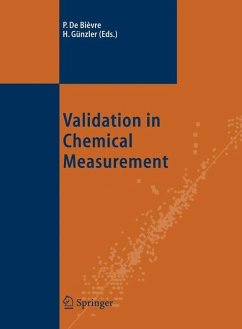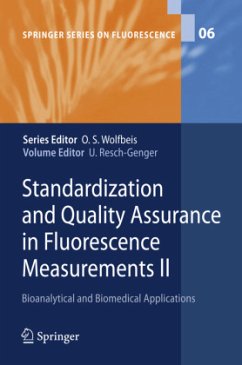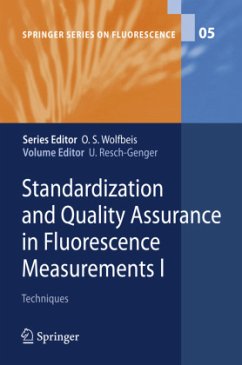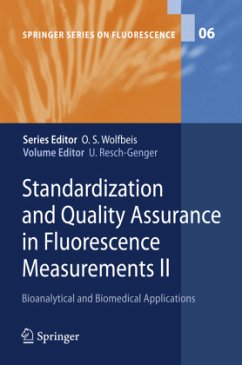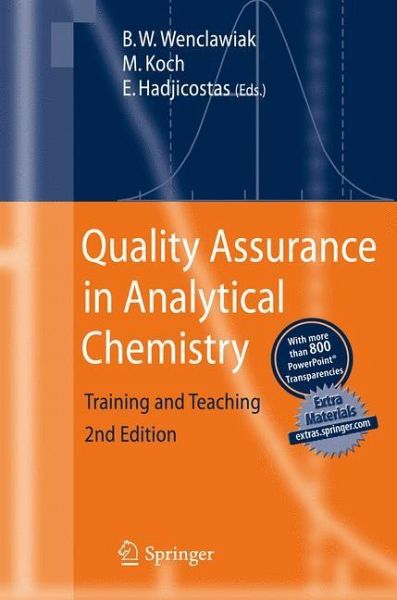
Quality Assurance in Analytical Chemistry
Training and Teaching
Herausgegeben: Wenclawiak, Bernd W.; Koch, Michael; Hadjicostas, Evsevios

PAYBACK Punkte
29 °P sammeln!
In this revised and enlarged textbook, the authors provide an in-depth but easy to understand coverage of quality assurance for chemical measurements. In particular the chapters on measurement uncertainty, calibration and validation are practically all new.
knowledge. This material provided has been collected from different sources. One important source is the material available from EURACHEM. Eurachem is a network of organisations in Europe having the objective of establishing a system for the international tra- ability of chemical measurements and the promotion of good quality practices. It provides a forum for the discussion of common problems and for developing an informed and considered approach to both technical and policy issues. It provides a focus for analytical chemistry and quality related issues in Europe. You can find more information about EURACHEM on the internet via "Eurachem -A Focus for Analytical Chemistry in Europe" . In particular the site Guides and Documents contains a number of different guides, which might help you to set up a quality system in your laboratory. The importance of quality assurance in analytical chemistry can best be described by the triangles depicted in Figs. 1 and 2. Quality is checked by testing and testing guaranties good quality. Both contribute to progress in QA (product control and quality) and thus to establishing a market share. Market success depends on quality, price, and flexibility. All three of them are interconnected. Before you can analyse anything the sample must be taken by someone. This must be of major concern to any analytical chemist. There is no accurate analysis wi- out proper sampling. For correct sampling you need a clear problem definition. There is no correct sampling without a clear problem definition






